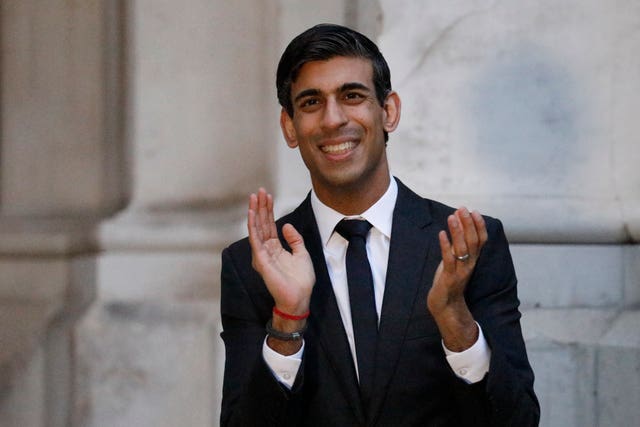Anger over lack of supplies of personal protective equipment (PPE) for NHS workers is growing as a desperately needed consignment of 400,000 gowns was delayed.
The government has been under increasing pressure to ensure the safety of frontline health staff and one leading NHS figure revealed his “bitter experience” of the lack of basic items such as gowns in recent weeks.
The number of hospital deaths of people who tested positive for coronavirus (Covid-19) passed 16,500. The figure does not include those who died in care homes.
The government scheme for workers who have been furloughed – given a temporary leave of absence – opened today and chancellor Rishi Sunak announced a £1.25bn package to aid companies in the innovation sector.
Education secretary Gavin Williamson said there was no set date for pupils to go back to schools in England, as he ruled out opening them over the summer holidays.
However, worries over the lack of PPE remained a dominant issue, as a much-anticipated shipment of 84 tonnes, including 400,000 gowns, failed to arrive from Turkey as scheduled.

Chris Hopson, chief executive of NHS Providers told the Guardian: “We have, over the last 24 hours, seen an unhelpful focus on one individual consignment coming from Turkey.
“We are told that this consignment is still stuck in Turkey with no certainty, at the time this comment was issued, on how many gowns, if any, will leave for the UK, [and] when.
“Given the current uncertainties over gown manufacture and supply, due to global shortages, we suggest that any future announcements on what gowns might be available for delivery, when, just focus on what we can be certain of.
“Bitter experience in recent weeks has shown that promised consignments of gowns cannot be relied on until they come, are checked and found to contain the right kit.
Our latest press release from @ChrisCEOHopson responds to the current demand for gowns in the #NHS.
📰 https://t.co/CKQUL3ZEov #covid_19 pic.twitter.com/2lwPPeKNaq
— NHS Providers (@NHSProviders) April 19, 2020
“For example, a consignment of 200,000 gowns that arrived from China last week actually contained only 20,000 gowns. This follows previous instances of consignments of gowns being mislabelled and failing safety tests.”
Dr Chaand Nagpaul, chairman of the British Medical Association, said: “We made it clear weeks ago that we need to do something about the likelihood of a lack of protective equipment.”
Claudia Paoloni, president of the doctors’ union HCSA, said: said: “Our NHS workers are going above and beyond on a daily basis to heal. They should expect at the very least adequate protection to keep them fit and well to engage in this fight.
“Yet instead they are being asked to sacrifice themselves due to the failings of others.”
Meanwhile, the Coronavirus Job Retention Scheme went into operation on 20 April with businesses able to claim towards staff wages.
The launch of the scheme comes as the government was warned of the economic cost for many companies of any delay in its implementation.
Under the initiative, employers can go online to claim cash grants worth up to 80% of wages, capped at £2,500 a month per worker.
Chancellor Rishi Sunak also launched a £1.25bn package to aid firms in the innovation sector, including a £500m investment fund for high-growth companies hit by the crisis.
Small and medium-sized firms specialising in research and development will be eligible for access to £750m of grants and loans.
Downing Street also hit back at newspaper reports that Boris Johnson and his administration dragged their feet in the run-up to the outbreak of the coronavirus pandemic.

Number 10 accused the Sunday Times of “falsehoods” and “errors” after the newspaper published a piece in which a Whitehall source claimed the government “missed the boat on testing and PPE”
A government spokesman said: “This article contains a series of falsehoods and errors and actively misrepresents the enormous amount of work which was going on in government at the earliest stages of the coronavirus outbreak.”
Meanwhile, leader of the Commons Jacob Rees-Mogg insisted decisions on issues, such as lifting the lockdown, could be made without the PM.
He told BBC Radio 4’s The Westminster Hour: “We have Cabinet government not presidential government.
“The prime minister chairs meetings and decisions come from those meetings.
“But when he’s away there’s somebody else chairing the meetings and that’s the first secretary”.


















